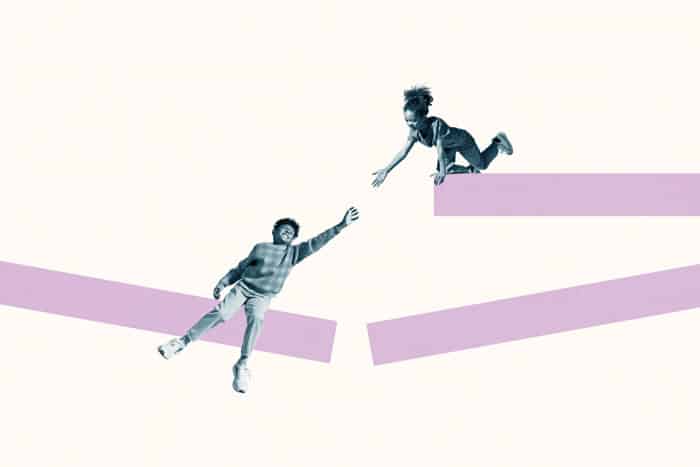
I sat at our friends’ table the second night of Rosh Hashanah, closed my eyes and cried. I had been suffering from an awful migraine for the past 48 hours. I couldn’t sleep. I couldn’t see straight. I threw up. And on Saturday morning, when I was two blocks away from synagogue, I felt so weak that I had to turn around and walk 20 minutes back to my house with my two daughters in the stroller.
My oldest daughter, who is 3, yelled “I want to go to shul!” and started crying.
“I do too, honey,” I said, the tears streaming from my eyes. “I wish I could take you.”
I’d never missed shul on Rosh Hashanah. I hardly missed shul anytime. But I was in such pain that I needed to sleep. I ended up staying in bed most of the day.
By the time we got to my family and I got to our friends’ house, it felt like someone was jackhammering my brain. I was afraid I was going to have a stroke.
“I have to go home,” I told my husband, Daniel. “I can’t stay here. I’m hurting so bad.”
“Let’s ask for help,” he said. “And if that doesn’t work, then we can go.”
“No,” I said, tearing up. “It’s so embarrassing.”
“No, it’s not. Here, I’ll ask. Don’t worry.”
When our friends, who were prepping the food, came over to the table, Daniel told them what was going on and asked if there was anything they could do. “We’re going to help,” they said.
One of them immediately brought me a cold seltzer in case I was dehydrated. Another one massaged my shoulders so that I wouldn’t be so tense. And another brought me a different migraine medicine from the one I was taking.
I took two pills. And after just 10 minutes, I felt nearly 100% better.
“See?” Daniel said. “You just have to learn how to ask for help.”
I was so touched how everyone rallied together to take care of me. And I knew that Daniel was right.
I usually keep to myself because I don’t want to inconvenience anyone. As a child, when I spoke up, my teachers wouldn’t listen or worse, they’d yell at me. One time, in the second grade, as my teacher was washing my hands, I yelped and told her the water was way too hot.
“No, it’s not,” she said, and continued to wash my hands even though it was scalding.
Sometimes, when I was in a tense situation as a kid, I’d joke around, but the adults in the room wouldn’t take kindly to it. They’d tell me to stay out of it or be quiet.
From these experiences, I learned to keep everything inside. I tried to be independent and take care of myself and go unnoticed.
This Rosh Hashanah, I saw that old habits die hard. I was giving into them again, and it took a horrible migraine and love from my husband and friends to snap me out of it.
I thought about how it’s important to accept help from others – and from Hashem. We need to open ourselves up to receiving His love and support. The more we ask for it and accept it, the more we will receive it. I pray constantly for help. All the time, Hashem answers my prayers. I know He’s listening and giving to me.
Needing help is not a sign of weakness. In fact, when you ask someone for help, you are giving them the opportunity to do a mitzvah.
Needing help is not a sign of weakness. In fact, when you ask someone for help, you are giving them the opportunity to do a mitzvah.
This new year, I hope to be better at accepting help from others, like I do from Hashem. I learned this crucial lesson over the High Holidays – and it’s one that I won’t soon forget.
Have you learned to accept help? Email me your story: Kylieol@JewishJournal.com.
Kylie Ora Lobell is the Community Editor of the Jewish Journal.























 More news and opinions than at a Shabbat dinner, right in your inbox.
More news and opinions than at a Shabbat dinner, right in your inbox.